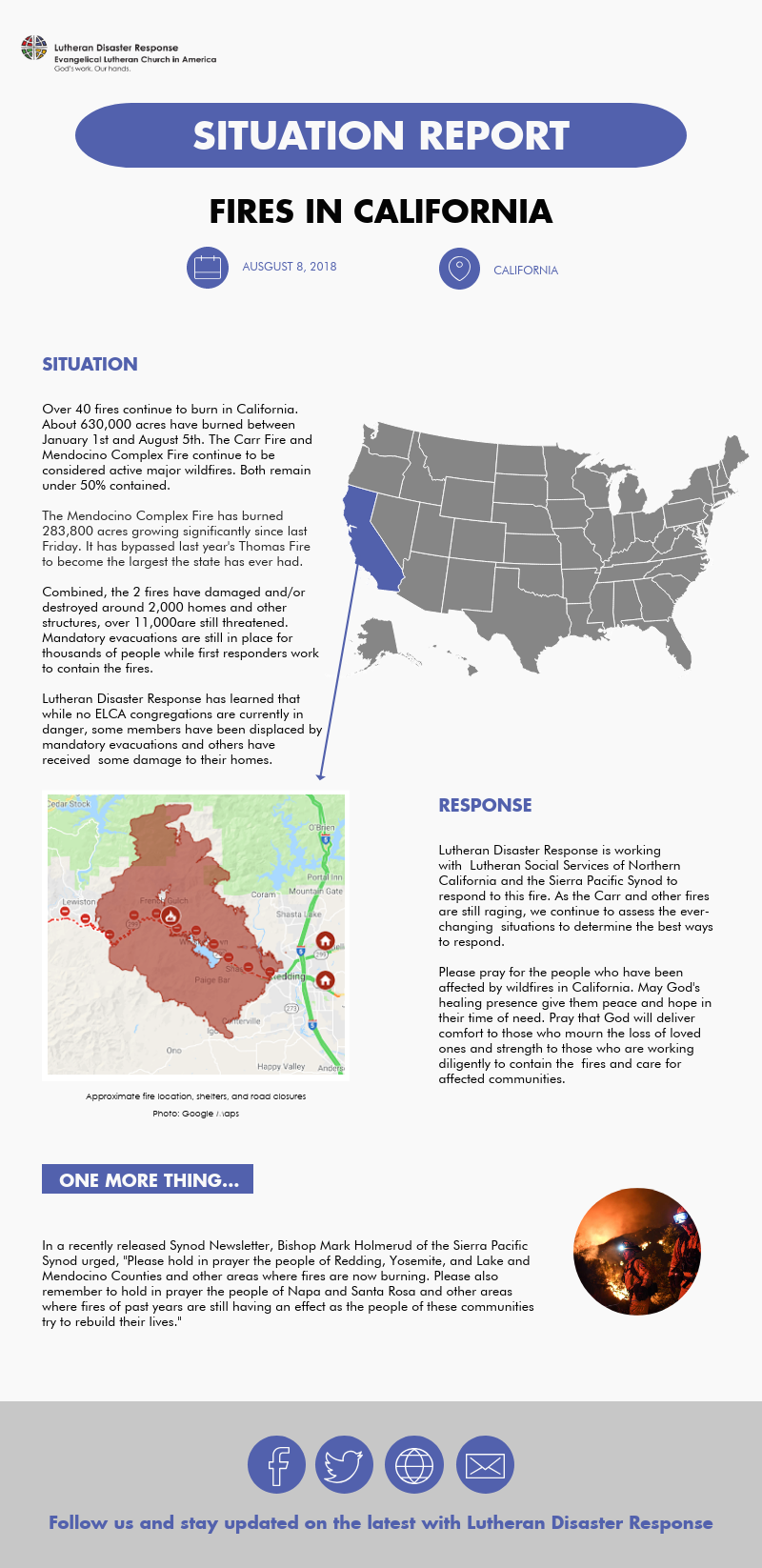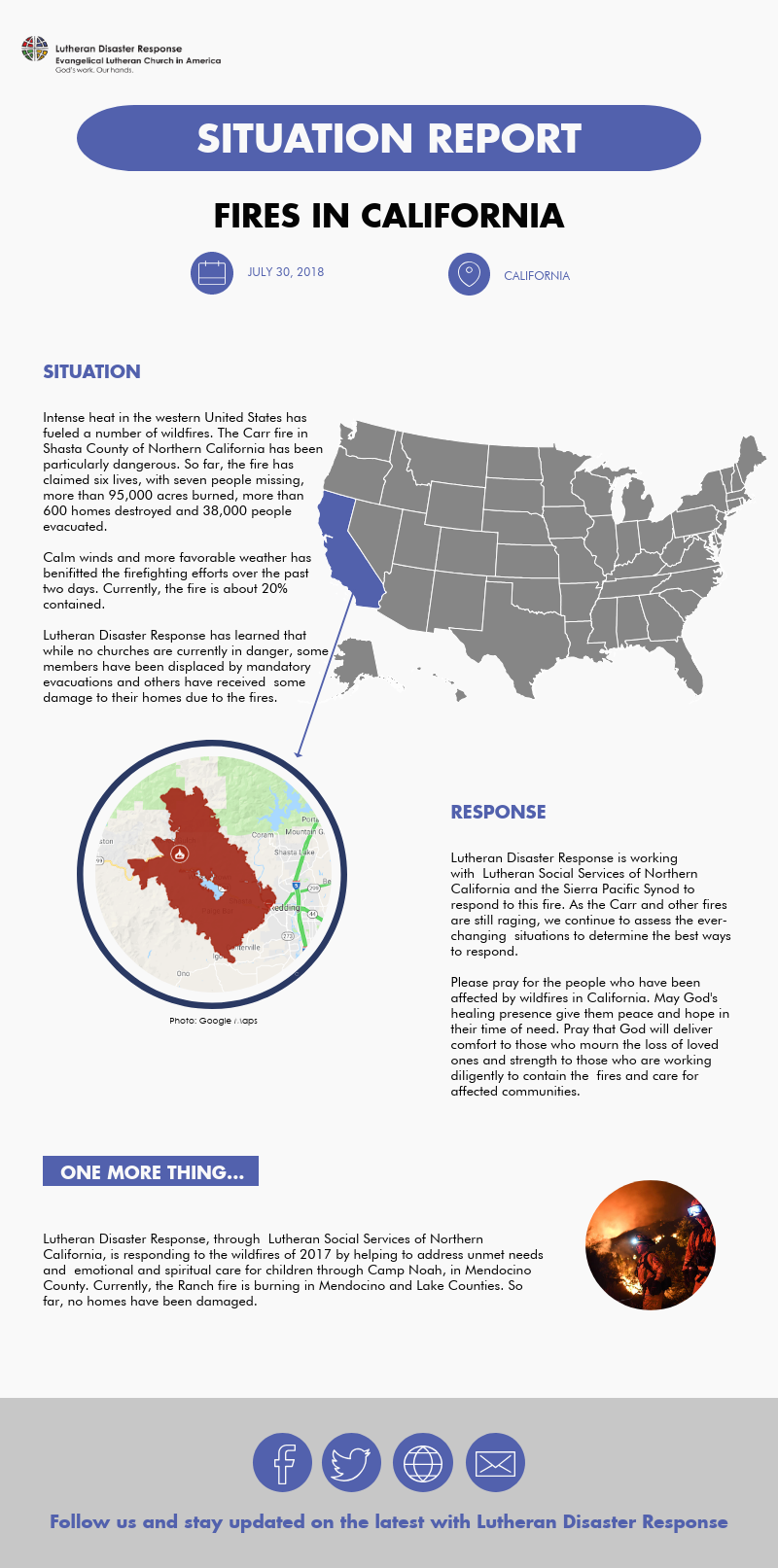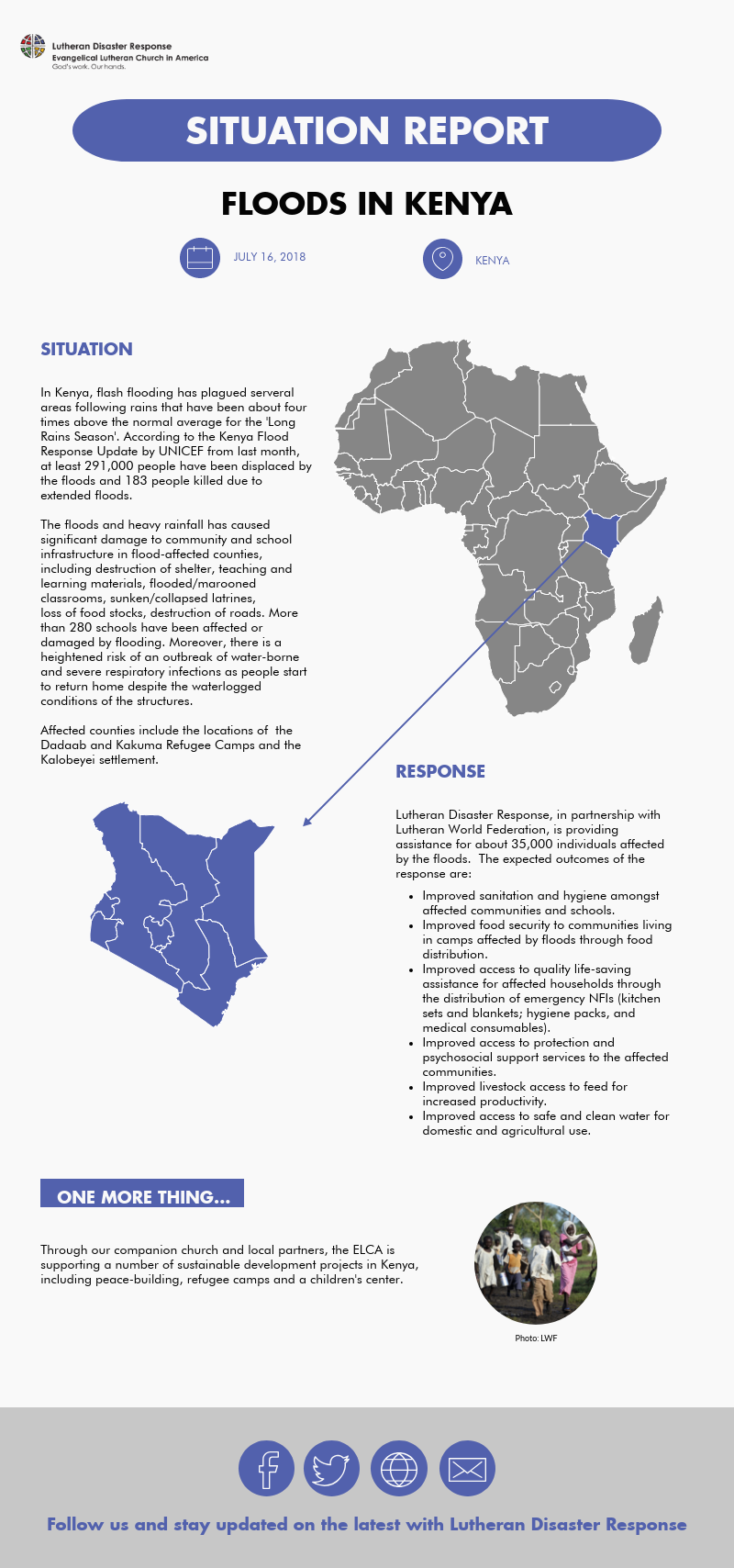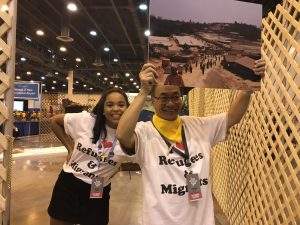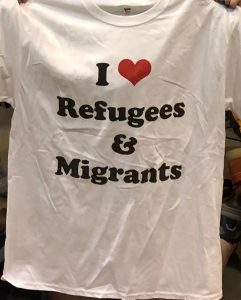
“I heart migrants and refugees”, this phrase was on the t-shirt I wore while working the Lutheran Disaster Response/AMMPARO booth in the interactive learning center at the National Youth Gathering in Houston. It was the same t-shirt that we gave to participants at the end of their learning journey. It was a tangible way to understand my work the week of the youth gathering. If I left the NRG center for lunch or got dinner on my way back, people would notice the message of my work. I worked the beginning of the refugee interactive learning experience and participants asked where they could find my shirt. They wanted to share the message too.
I spent three days teaching youth and their leaders about refugees. I learned about refugees in preparing for the youth gathering, and while I knew what we were discussing was very important, I did not expect the magnitude of the booth’s impact. I attended two youth gatherings as a high school participant. I’ve been in the crowd of 30,000 plus, but I could not imagine just how many people 30,000 people is when you yourself are not one of the participants. The booth had a line for almost the entirety of the gathering. I was amazed at the amount of people eager to learn. On public transportation when youth groups asked what I did, they told me they had heard of the booth and that people we’re saying that others should check it out. During a summer where the lives of refugees and migrants are frequently on the news it felt productive to be talking about it with youth, to watch thousands of kids learn about the lives of their neighbors and if they were so inclined at the end of their experience to advocate.
This wasn’t the only way I saw the impact of the youth at the gathering. I spent my mornings in a booth that discussed the intersection of young adult ministry, advocacy, and the Strategy on HIV/AIDS. The Strategy on HIV/AIDS had a welcome board, where we asked kids to think about ways to challenge stigma and to write messages of affirmation. Every morning the board started blank. I watched kids thoughtfully approach the board and add their message. When I returned at the end of the day after spending my afternoon with the LDR/AMMPARO booth, the board would be full. Every day kids filled this board with messages of affirmation and took a moment to be thoughtful about the ways they and their congregations could be a place of welcome. There was, again, a visual reminder of the messages of the ELCA and the youth of the church. 30,000 voices can be loud, and together they spread and share powerful and important messages about the world we live in and what we want it to look like.
Maria Bruno is an Intern with Community Development Services at the ELCA Churchwide Office in Chicago. She attends the University of Virginia where she is persuing a MA in Religious Studies with a concentration in theology, ethics and culture.
Be a part of the response:
Pray
Continue to pray for all those impacted by conflict and forced migration.
Give
Thanks to generous, undesignated donations, Lutheran Disaster Response is able to respond quickly and effectively to disasters around the globe, including the Rohingya refugee crisis. Your gifts to Lutheran Disaster Response will be used where there is the greatest need.
Connect
To learn more about global migration and what Lutheran Disaster Response is doing:
- Like Lutheran Disaster Response on Facebook.
- Follow us on Twitter.
- Visit our website at LDR.org
- Sign up to receive Lutheran Disaster Response alerts.

